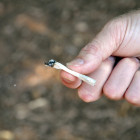
Many Doctors in Florida Juvenile Justice System Taking Large Payments from Drug Companies
|
In Florida, an investigation by The Palm Beach Post discovered more than a third of psychiatrists working for the state juvenile jails have accepted large speaking fees from pharmaceutical companies producing the anti-psychotic drugs regularly prescribed to kids in the Florida juvenile justice system. According to The Post, child advocates are claiming the doctors are over-prescribing the powerful psychotropic drugs to children in the juvenile jails as a “chemical restraint” and not for a legitimate medical reason. As a consequence of The Post’s findings, the Florida Department of Juvenile Justice Secretary Wansley Walters began an investigation into how psychotropic drugs are prescribed to children in DJJ custody.








